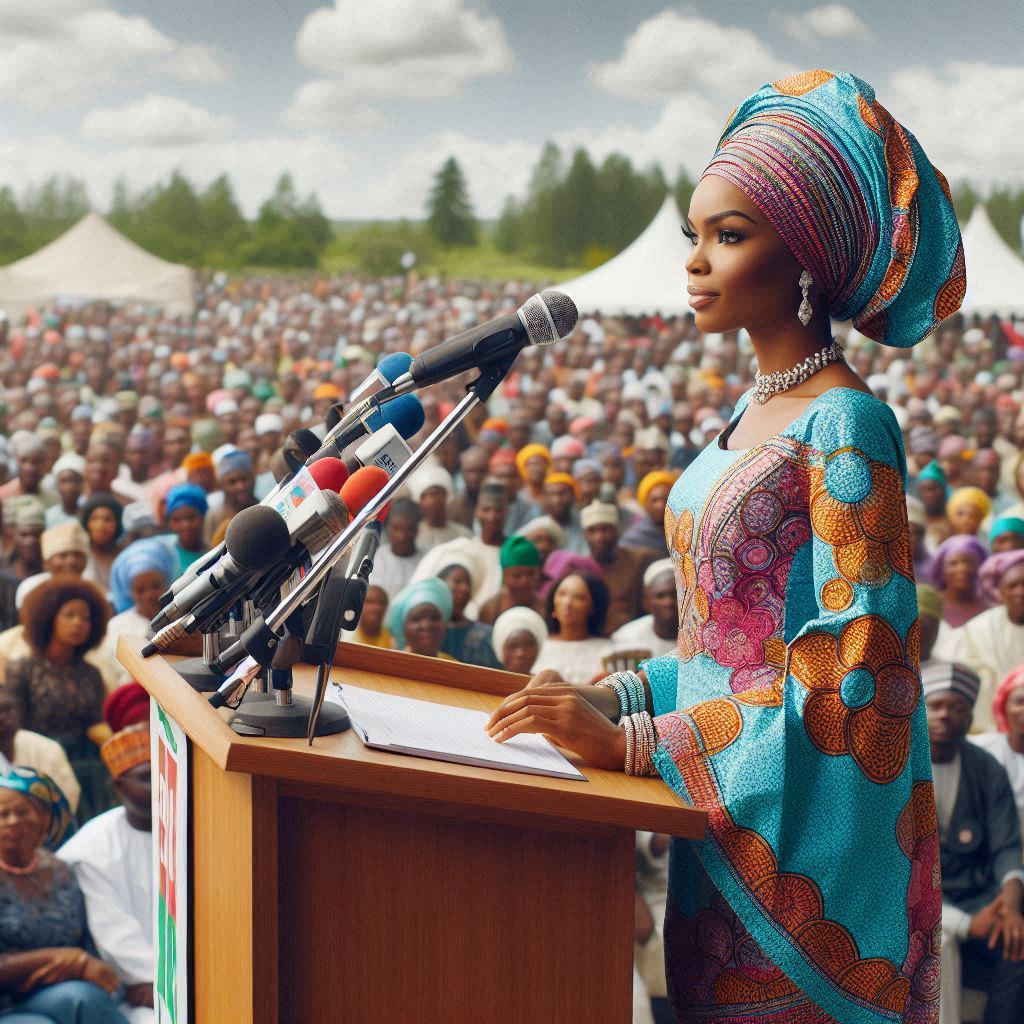Introduction
European languages have deeply influenced Nigerian cultures over the centuries.
This chapter explores their historical roots and significant impact on Nigeria’s cultural landscape.
Brief Background Information on the History of European Languages in Nigeria
European languages arrived in Nigeria during the colonial period.
British colonial rule established English as the official language.
Portuguese explorers and traders also left a lasting cultural imprint.
The French influence is evident in some regions due to proximity to Francophone countries.
Definition of European Languages and Nigerian Cultures
European languages include English, French, Portuguese, and Spanish.
These languages stem from Europe and have spread worldwide through colonization and trade.
Nigerian cultures encompass diverse traditions, languages, and social practices of Nigeria’s many ethnic groups.
These cultures are rich and varied, reflecting the country’s complex history and ethnic diversity.
Thesis Statement on the Impact of European Languages on Nigerian Cultures
European languages have significantly transformed Nigerian cultural expressions.
They have reshaped communication, education, and media, blending with indigenous traditions.
English, in particular, has become a unifying language, facilitating national dialogue and international relations.
This linguistic integration has created a unique cultural fusion, influencing literature, entertainment, and everyday life in Nigeria.
Historical overview of European languages in Nigeria
During the colonial era, European languages such as English, French, and Portuguese were introduced to Nigeria.
The British colonization in the 19th century played a significant role in spreading the English language in Nigeria.
French and Portuguese were also introduced by the French and Portuguese colonization of nearby regions.
These European languages became official languages and were used in administrative, educational, and political settings.
The colonization period and the introduction of European languages
The colonization of Nigeria by European powers led to the imposition of their languages on the local population.
The British, French, and Portuguese used their languages as tools of administration and control over the Nigerian people.
This resulted in the displacement of indigenous languages and the dominance of European languages in various aspects of life.
The introduction of European languages marked a new era in Nigerian history, shaping its linguistic landscape.
Analysis of the role of missionaries in spreading European languages in Nigeria
Missionaries from Europe played a crucial role in spreading European languages in Nigeria.
They established schools, churches, and missions where European languages were taught and used for communication.
Through their educational and evangelistic activities, missionaries promoted the use of European languages among the local population.
The influence of missionaries contributed to the widespread adoption of European languages in Nigeria.
The impact of trade and commerce on language adoption
Trade and commerce also played a significant role in the adoption of European languages in Nigeria.
European traders and merchants engaged in economic activities with the local population, promoting the use of their languages.
This interaction led to the integration of European languages into the Nigerian business environment.
The need for communication in trade and commerce further reinforced the adoption of European languages in Nigeria.
In essence, the historical overview of European languages in Nigeria reveals the complex dynamics of language spread and adoption.
The colonization period, role of missionaries, and impact of trade and commerce all contributed to the dominance of European languages in Nigerian cultures.
Despite the challenges faced by indigenous languages, the influence of European languages remains prevalent in various aspects of Nigerian society.
Read: Communication Arts and Social Media Influence
Linguistic Influence of European languages on Nigerian cultures
European languages have had a significant impact on Nigerian cultures, shaping the way people communicate, think, and interact in society.
Examination of loanwords and loan translations from European languages
One of the most evident ways in which European languages influence Nigerian cultures is through loanwords and loan translations.
These borrowed words and translations have become integrated into the Nigerian lexicon, adding diversity and depth to the local languages.
For example, English words like “computer,” “telephone,” and “internet” have been seamlessly incorporated into daily Nigerian vocabulary.
Comparison of language structures and grammatical similarities between European and Nigerian languages
When examining language structures and grammatical similarities, it is clear that European languages have influenced Nigerian languages.
For instance, the syntax and sentence structure in English and Nigerian languages like Yoruba or Igbo exhibit similarities due to historical colonial influence.
These structural similarities highlight the deep linguistic connections between European and Nigerian languages.
Exploration of code-switching and bilingualism in Nigerian society
Code-switching, the practice of shifting between multiple languages within a conversation, is common in Nigerian society.
This linguistic phenomenon is a reflection of Nigeria’s multilingual and multicultural environment, where individuals navigate between European and Nigerian languages effortlessly.
Bilingualism is prevalent in Nigeria, with many individuals proficient in both local languages and European languages like English, French, or Portuguese.
Essentially, the linguistic influence of European languages on Nigerian cultures is undeniable.
From loanwords and translations to language structures and code-switching, European languages have become an integral part of Nigerian society, enriching its linguistic landscape and reflecting the country’s diverse heritage.
Read: Innovations in Language Arts Teaching Methods
Educational Impact of European Languages in Nigeria
Overview of the education system and the dominance of English as the medium of instruction
Nigeria, a country located in West Africa, has a diverse linguistic landscape with over 500 languages spoken throughout the country. However, the official language of Nigeria, inherited from its colonial past, is English.
English serves as the language of instruction in schools and is used for official communication in government and business settings.
The dominance of English in the education system can be attributed to the legacy of British colonization, which introduced English as the medium of instruction in schools.
Analysis of the implications of language preference on educational outcomes
The preference for English as the medium of instruction in Nigerian schools has both positive and negative implications on educational outcomes.
On one hand, English is considered a global language that provides students with access to a wide range of educational resources and opportunities.
It also helps to promote national unity and cohesion by serving as a common language of communication among Nigeria’s diverse ethnic groups.
However, the overreliance on English may also lead to the marginalization of indigenous languages and cultures, as students are often encouraged to prioritize English at the expense of their native languages.
This can result in a loss of cultural identity and a disconnect between students and their heritage.
The challenges faced by Indigenous languages in schools:
Despite the cultural richness and linguistic diversity of Nigeria, indigenous languages face numerous challenges in the country’s education system.
One major challenge is the lack of resources and support for the teaching of indigenous languages in schools. Many schools prioritize English over indigenous languages, leading to a decline in the use and proficiency of native languages among students.
Additionally, there is a perception that indigenous languages are inferior to English in terms of educational and economic opportunities, which further marginalizes these languages in the education system.
As a result, many indigenous languages are at risk of extinction, as younger generations increasingly prioritize English over their native tongues.
In short, the educational impact of European languages, particularly English, in Nigeria is complex and multifaceted.
While English provides students with access to global opportunities and fosters national unity, its dominance in the education system poses challenges for indigenous languages and cultures.
Moving forward, it is essential for policymakers and educators to strike a balance between promoting English proficiency and preserving the linguistic diversity and cultural heritage of Nigeria.
Read: Research Areas in African and Asian Studies
Cultural influence of European languages on Nigerian traditions
The influence of European languages on Nigerian traditions dates back to the colonial era when European nations established dominance over various regions in Africa.
These languages, such as English, Portuguese, French, and Spanish, were introduced through colonization and trade, leaving a lasting impact on Nigerian cultures.
How European languages have influenced naming conventions and ceremonies
One of the most significant ways European languages have influenced Nigerian cultures is through naming conventions. Many Nigerians have adopted European names, particularly English names, alongside their traditional names.
This practice reflects the integration of European influence into Nigerian society and highlights the cultural exchange that has occurred over centuries.
Furthermore, European languages have also impacted traditional ceremonies and rituals in Nigeria. For example, Christian weddings often incorporate elements of European customs and traditions, alongside Nigerian customs, creating a unique blend of cultural influences.
This fusion of traditions showcases the adaptability and resilience of Nigerian culture in the face of European language influence.
Analysis of the impact of literature and media in shaping cultural values through European languages
Literature and media have played a pivotal role in shaping cultural values in Nigeria through the use of European languages.
Many Nigerian writers and filmmakers have chosen to express themselves in English or other European languages to reach a broader audience both locally and internationally.
This decision has not only influenced the themes and narratives of their work but has also contributed to the preservation and dissemination of Nigerian culture on a global scale.
Additionally, the influence of European languages in literature and media has facilitated cultural exchange and dialogue between Nigeria and the Western world.
Through works of fiction, poetry, and film, Nigerian artists have been able to showcase the richness and diversity of Nigerian culture to audiences worldwide. This cross-cultural exchange has led to a greater appreciation and understanding of Nigerian traditions, customs, and values.
The preservation of indigenous cultures amidst European language influence
As European languages continue to influence Nigerian cultures, there is an ongoing debate about the preservation of indigenous traditions and languages.
Some argue that the dominance of European languages poses a threat to the preservation of Nigerian heritage, as younger generations may prioritize learning English over their native languages.
This shift could lead to the loss of valuable cultural knowledge and practices that are vital to the identity of Nigerian communities.
However, efforts are being made to preserve and promote indigenous cultures in Nigeria despite the influence of European languages.
Government initiatives, cultural institutions, and community organizations are working together to safeguard traditional practices, languages, and customs.
By recognizing the importance of indigenous cultures and languages, Nigerians are actively engaging in the preservation of their rich heritage and ensuring its continuity for future generations.
In fact, the influence of European languages on Nigerian cultures is undeniable and multifaceted. From naming conventions to ceremonies, literature to media, the impact of European languages can be seen in various aspects of Nigerian society.
While there are concerns about the preservation of indigenous traditions, Nigerian communities are actively working towards safeguarding their heritage and embracing the cultural diversity that comes with language influence.
Read: Exploring Semiotics in Communication Arts

You Might Also Like: Benefits of Studying Foreign Languages in Nigeria
Explore Further: Nigerian Art Exhibitions You Must Visit
Societal implications of European language adoption in Nigeria
European languages have significantly impacted Nigerian cultures, leading to societal changes and implications that have shaped various aspects of life in the country.
Examination of social stratification based on language proficiency
The adoption of European languages in Nigeria has created a divide among the people based on language proficiency.
Those who are fluent in English, French, or Portuguese have often been perceived as more educated and sophisticated, while those who speak indigenous languages are sometimes marginalized or seen as less educated.
This language-based social stratification can affect opportunities for employment, education, and social mobility, making it essential to address language proficiency as a factor in societal dynamics.
Analysis of the influence of European languages on social norms and behaviors
European languages have influenced social norms and behaviors in Nigeria by shaping communication styles, interaction patterns, and cultural practices.
For example, the use of English as a dominant language in business and education has influenced the way people interact in these settings, impacting hierarchy, etiquette, and negotiation strategies.
Additionally, the adoption of European languages has influenced aspects of popular culture, such as music, fashion, and media, leading to the fusion of Western and Nigerian cultural elements.
The role of language policy in promoting linguistic diversity and inclusivity
Language policy plays a crucial role in promoting linguistic diversity and inclusivity in Nigeria.
While the adoption of European languages has brought about certain benefits in terms of international communication and access to global knowledge, it is essential to recognize and support indigenous languages to preserve cultural heritage and promote inclusivity.
Language policies that prioritize multilingualism and bilingual education can help celebrate linguistic diversity, empower marginalized communities, and promote social cohesion in a multicultural society like Nigeria.
You Might Also Like: Popular Mass Communication Alumni in Nigeria
Learn More: Study Abroad Options for Nigerian Arabic Students
Find Out More: History of Anthropology Studies in Nigeria
Resistance and Revitalization Efforts for Indigenous Languages
One of the most pressing issues facing Nigerian cultures today is the decline of indigenous languages.
As European languages continue to dominate in various sectors of society, many Nigerian languages are at risk of extinction. However, there are ongoing efforts to resist this trend and revitalize indigenous languages.
Transform Your Career with Expert Guidance
Get personalized mentorship consulting that’s tailored to your unique path. Our expert advice is actionable and exclusive.
Get StartedOverview of Initiatives to Preserve and Promote Nigerian Languages
Several organizations and government bodies have taken steps to preserve and promote Nigerian languages.
For example, the National Institute for Cultural Orientation (NICO) has launched language revitalization programs that aim to raise awareness of the importance of indigenous languages.
In addition, local communities have also played a role in preserving Nigerian languages. By organizing language classes and cultural events, communities are able to pass on their languages to younger generations.
Exploration of Language Revitalization Programs and Community-Based Efforts
Language revitalization programs have varied in their approaches, from formal education programs to community-led initiatives. Some programs focus on teaching Nigerian languages in schools, while others prioritize oral traditions and storytelling.
Community-based efforts have been instrumental in revitalizing Nigerian languages. By creating language nests and immersion programs, communities are able to create environments where their languages can thrive.
Analysis of the Importance of Multilingualism in Preserving Cultural Diversity
Multilingualism plays a crucial role in preserving cultural diversity in Nigeria. By speaking multiple languages, individuals are able to connect with different cultural groups and understand the nuances of various traditions.
Furthermore, multilingualism fosters a sense of pride and identity in local communities. When individuals are able to speak their indigenous languages, they are better able to preserve their cultural heritage and pass it on to future generations.
Discover More: Exam Tips for International Politics Students Nigeria
Gain More Insights: Traditional vs. Modern Arabic Studies in Nigeria
Conclusion
European languages have significantly influenced Nigerian cultures, shaping communication, education, and social interactions.
They have melded with local traditions, creating a unique cultural blend.
English, as the official language, dominates education, government, and business. This dominance often marginalizes indigenous languages, posing a threat to their survival.
Language is more than a communication tool; it is a vessel of cultural identity, carrying traditions, values, and histories.
The imposition of European languages can erode these unique cultural elements, leading to a loss of heritage.
Promoting linguistic diversity is crucial for cultural preservation. We must celebrate and safeguard Nigeria’s rich linguistic heritage. Efforts should be made to document and teach indigenous languages in schools.
Encouraging the use of native languages in media and technology can bolster their survival. Communities should be empowered to pass their linguistic traditions to future generations.
Supporting local languages in official and informal settings helps maintain cultural richness. Preserving Nigerian languages in the face of European influence is vital for maintaining the nation’s cultural diversity.
Let us champion a multilingual Nigeria, honoring its diverse linguistic landscape.
Promote linguistic diversity today for a culturally vibrant tomorrow. Language preservation requires collective action from individuals, communities, and governments.




